“Get that on EV Frickin’ Central!”: Toyota boss exults in Australian launch of new HiLux EV in 2026, hydrogen HiLux coming in 2028
Toyota Australia has confirmed the launch of a battery electric dual cab HiLux ute in Australia in the first half of 2026.
But while that was expected, as reported last week, the confirmation of a hydrogen fuel cell HiLux to follow in 2028 was not.
READ MORE: New Toyota Corolla debuts: Toyota confirms EV for the next generation of the world’s best-selling car!
READ MORE: Move over diesel! Electrified Toyota LandCruiser 300 Series breaks cover ahead of 2026 launch. First details confirmed. It isn’t going to be cheap!
READ MORE: 2026 Toyota RAV4 Aussie range detailed: PHEV and hybrid on the way, but so are price rises
“Who said we were slow? Get that on EV frickin’ Central,” excited Toyota Australia marketing chief Sean Hanley declared after confirming the BEV HiLux.
He was speaking during a recent media brief to detail the ninth-generation HiLux that goes on-sale as a diesel in December (pictured above).
No pricing was announced for the BEV, but Toyota did confirm it was primarily a fleet vehicle, with a particular focus on mining.
But it will be aimed at private buyers such as urban tradies as well.
The BEV will be a dual cab offered in a lower grade combing elements of both Workmate and SR and an upper-spec SR5.
Both grades will be powered by a dual motor all-wheel drive system and have a lithium-ion battery. Range and pricing is as yet unconfirmed.
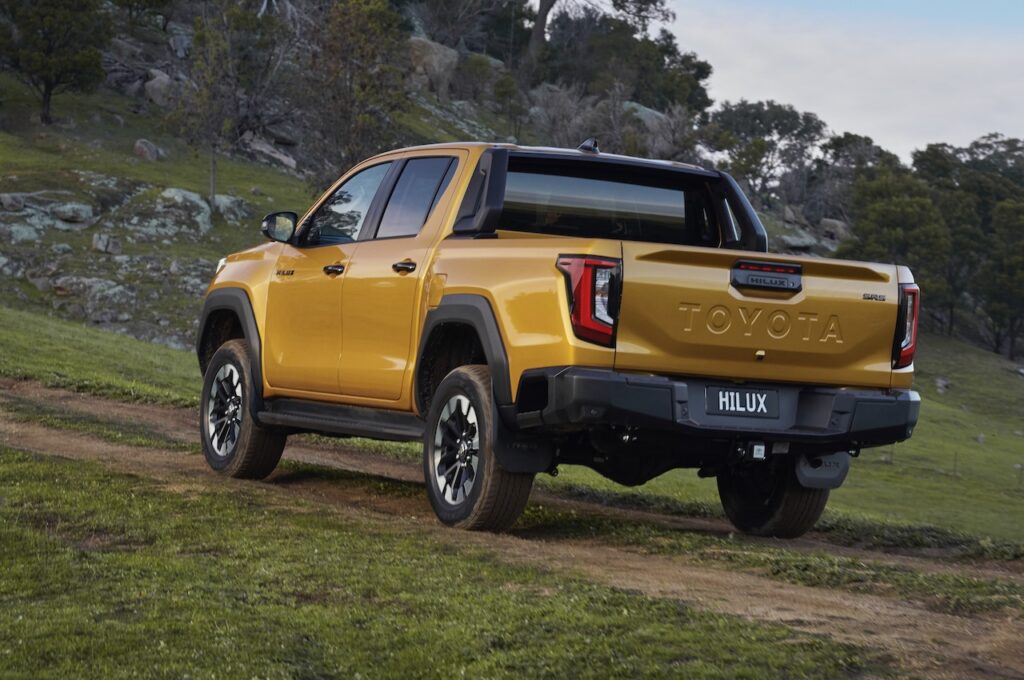
“It will be dearer than the diesel utes we have right now,” Hanley told media.
“But it’s got to be attainable, it can’t be $100,000.”
The BEV HiLux comes off the back of a trial Toyota and BHP have been conducting for some time.
No details are available about the hydrogen HiLux, but a development program is being conducted by Toyota UK.
A hydrogen HiLux trial has also been running in Thailand.
Hanley’s reference to EV Central is a reflection of the frustration Toyota feels internally that it has been portrayed as an environmental laggard because it has not embraced EVs at the same pace as other brands.
Toyota currently only sells one EV in Australia, the bZ4X, although more are on the way.
It has long argued it has a multi-pathway approach to CO2 reduction, reflected by its long-term backing of hybrids as well as hydrogen, synthetic fuels and other strategies.
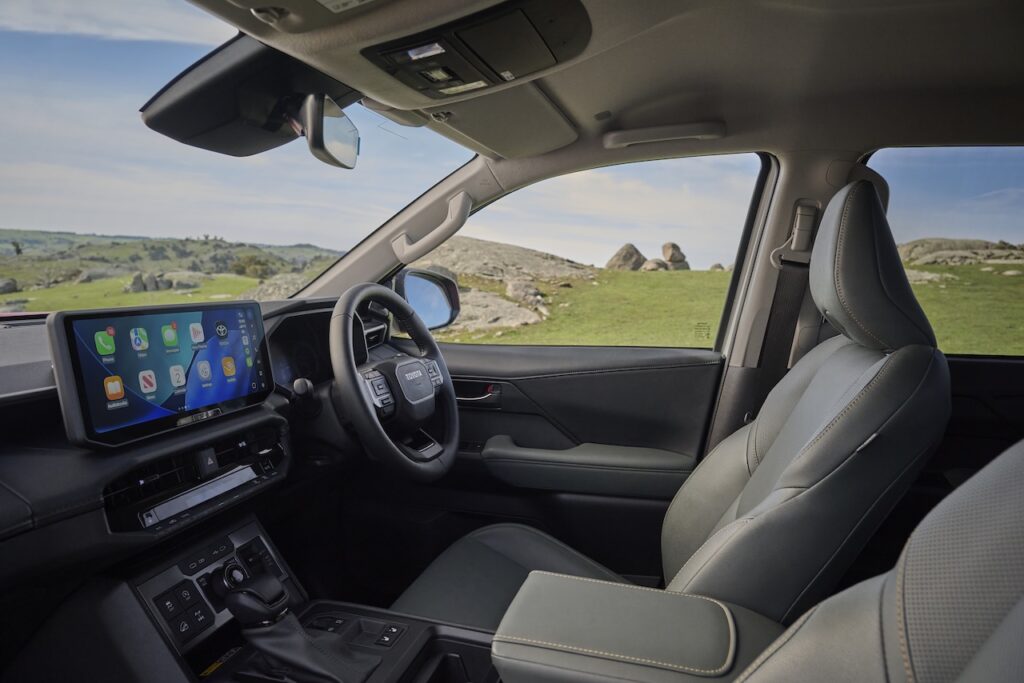
“The introduction of the first-ever HiLux BEV reinforces Toyota’s multi-pathway approach to decarbonisation, which is an exciting step forward for fleets and businesses looking to reduce their carbon footprint,” said Hanley.
“The inclusion of an FCEV variant in 2028 reinforces this multi-pathway approach and is the result of Toyota’s commitment to hydrogen fuel-cell electric technology.”
Perhaps surprisingly, Toyota has jumped plug-in hybrid and gone straight to an EV ute.
The PHEV BYD Shark 6 has shown there is a strong interest in plug-in utes in Australia. By contrast, the few EV utes seen so far have not had the range or payload capability to be competitive against diesel.
“Not at this stage, but not ruling it [PHEV] out entirely,” Hanley said. “There is no plan right now, we are having the BEV for the moment but you would never rule out the expansion of hybrid going forward.”
Hanley made it clear Toyota did not expect the HiLux EV to threaten the diesel for popularity.
“We have seen a growing demand for BEVs in the ute space, particularly … among fleet buyers.
“These are vehicles that will be used largely in short distance operations that need the payload and passenger capacity and are able to be recharged easily and economically.
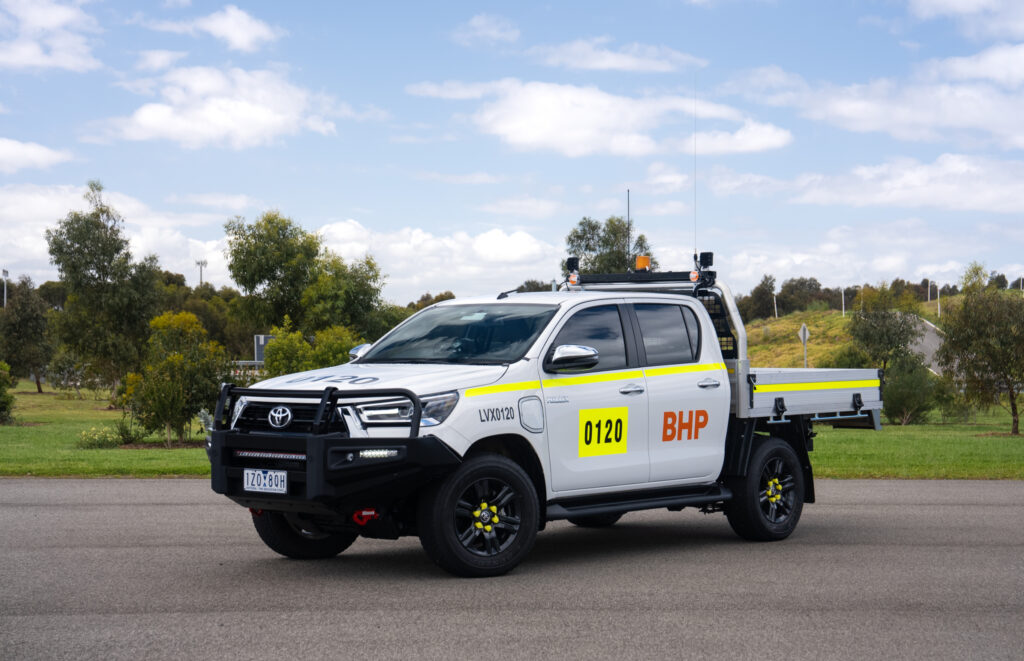
“Where this will have massive appeal will be mining,” he said.
No details were revealed about the hydrogen model.
However Hanley did reiterate Toyota’s support for hydrogen as a future fuel.
“I recently spoke about our belief that diesel fuel as we know today will likely need to be phased out in the coming decades,” he said.
“I stand by that statement and believe hydrogen has a big future in Australia and the automotive industry.”
He also backed bio-diesel as a future fuel option.
“In order not to leave anyone behind we are also supportive of the development of low carbon liquid fuels like bio-diesel,” he confirmed.
Meanwhile, HiLux models with automatic transmissions from SR up in the ninth generation HiLux range will be powered exclusively by a 48V mild hybrid version of the familiar 2.8-litre turbo-diesel engine.

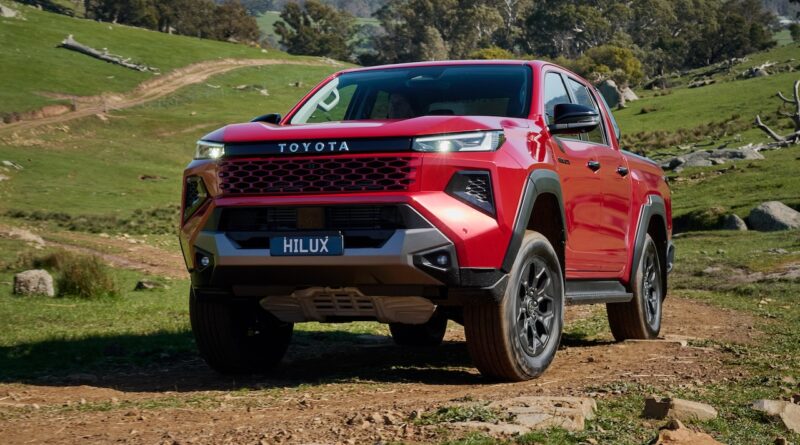
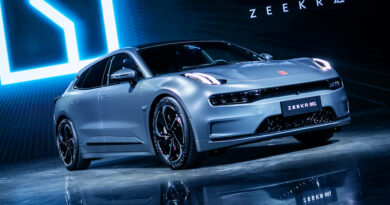
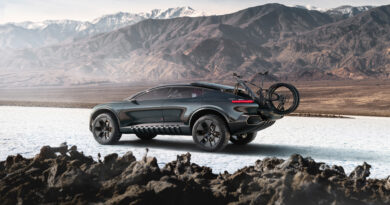
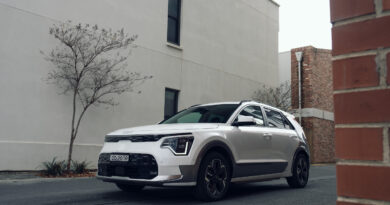
“Hanley’s reference to EV Central is a reflection of the frustration Toyota feels internally that it has been portrayed as an environmental laggard because it has not embraced EVs at the same pace as other brands.”
If the cap fits. . .
What an absolute joke another 2 years to wait
59.2 kWh lithium-ion battery.
Power output 144 kilowatts (front motor 205 Nm, rear motor 269 Nm).
Payload is 715 kgs. Can tow 1,600 kg.
Driving range of 240 km (WLTP).
So, it’s worse than the LDV eT60. Remember that joke?
Good job Toyota.